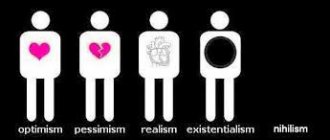The habit of being successful and happy implies a whole hierarchy of habits in the areas of health, work and rest, decision-making, learning and self-education, education and self-education, self-development. Why are some people successful in everything, while others can’t even find a job they love?
Looking at successful people, you think that luck itself pursues them in every endeavor, but they themselves seem to do nothing. Opportunities, abilities, fortune are just small cliches that haunt happy people. But is it? Is it a matter of luck?
We are all made up of habits. They are the foundation of personality. Failure, dissatisfaction with oneself is a consequence of the lack of a useful habit or the influence of a harmful one. Therefore, harmful addictions need to be gotten rid of, and useful ones need to be formed. By the way, a habit is formed not in three weeks, as many believe, but from 18 to 254 days. The final figure is influenced by the characteristics of the individual and the conditions of his social environment.
Can good habits cause harm?
Definitely. No matter how strange it may sound, a useful habit can become harmful or develop into neurosis, obsessiveness, or another mental disorder:
- the habit of keeping order can develop into compulsive-obsessive disorder;
- the habit of playing sports turns into a passion for fitness (as a result - taking medications and hormonal imbalance or injury due to heavy loads);
- the habit of eating right - diets, hunger strikes, anorexia, bulimia.
What does this come from? From excessive encouragement. The golden mean is important in everything.
Play sports
Let’s get ahead of those who will now say, they say, I don’t have enough time for work, I’m spinning like a squirrel in a wheel, what kind of sport is that? Do you know what requirement often flashes through the riders of pop stars when organizing concerts? Gym rental and personal trainer. That is, imagine: a singer goes on tour, lives in a completely crazy schedule, but still finds time for sports.
For example, trip-hop artist Trickey asks for a personal kickboxing trainer, and Madonna generally takes a personal yoga instructor with her. I had a free minute before the performance - pumped my fists or plunged into nirvana. When else if not now?
By playing sports, you get:
- good health. Comments are unnecessary here;
- outburst of negative emotions. Just kidding, but if you imagine the image of a competitor instead of a punching bag, you can let off some steam;
- the habit of fighting and winning. Those who play sports are more purposeful and do not give in to difficulties. In sports, as in business, there is a spirit of competition;
- a way to abstract from problems and failures. Many entrepreneurs note that as soon as they cross the threshold of the gym, all problems recede into the background.
Consequences of good habits
Yes, yes, good habits can have consequences, or rather, you will have to pay a price for your success. Not a fact, but you should be prepared for it.
Your self-improvement does not have to coincide with the self-improvement of the environment. “Friends” may begin to hinder your success, get angry and offended (at themselves, but you will get it). Often the friendly phrase “I love you for who you are” should be read as “I love myself against your background” or “I find self-justification through your company.” Very often, self-development deprives a person of his previous social circle.
There is only one way out - to move away from the destructive environment and join new spheres, circles of successful and strong people. While there are no such acquaintances, be prepared to go alone or seek help from a specialist:
- business trainer,
- fitness instructor,
- psychologist,
- Social worker.
Sometimes what you need to get rid of on the path to success is even destructive relationships with your family that are pulling you back. This is true. And you need to know her too.
Set goals and try to achieve them
When starting your own business, ask yourself the question: “What do I want to get in the end?” . The answer to it will be the goal of the entire enterprise. It can be anything: earn a million dollars, buy a house on the beach, make the world a little better. This is a global goal. But there are also secondary ones - they must be subordinated to the main one. Secondary goals can be long-term or short-term. Doubling revenue next year is a long-term goal. Read 5 books on marketing this month - short term.
Everything seems simple and clear, but there are several nuances regarding how to set goals . They should be:
- measurable. Not just “get rich”, but “earn a billion rubles”;
- achievable. Set results that can actually be achieved. The principle “demand the impossible from yourself and you will get the maximum” is not always appropriate. It is better to set a modest goal, but achieve results, than to raise the bar and experience disappointment;
- limited in time. A specific time should be allocated for each task;
- static. The conditions of the task should not change after it is posed;
- distributed. There is no need to lump all goals into one pile. Distribute them over time and complete them one by one.
It's time to act
Physiologists say that if you force yourself to play sports, then gradually the body itself will begin to help and mobilize its abilities. Gradually, you will strive to train, because without it “something will not be the same.” I think this is also relevant for psychology and the formation of any habit. The main thing is to start!
- Determine your own motivation. Values and interests are individual, so there can be no general recipe here.
- It's good to form a new habit based on old (or bad) habits. Think about what makes you do wrong. What allows you to avoid unwanted behavior? Grasp this straw and move on from it. For example, if you work more productively during the day knowing that you will have a nice dinner in the evening, then schedule such a pastime regularly.
- To form a habit, emotional reinforcement is important: positive or negative, that is, “carrot” and “stick”. To form a positive habit, it is important to praise yourself. For example, after a hard workout, take a cool shower or drink a glass of fresh juice. Gradually, the subconscious will remember that after “violence” comes a pleasant stroking. And trying to get up early in the morning to run will no longer be so incredible and painful.
- Determine the connection (action - positive reinforcement - result) that you want to receive. Search, try, watch your reactions. You can pay attention to other people's experiences, but remember: you are a unique individual, you need your own recipe for success.
- Consciously repeat this connection day after day, or even more than once. Yes, this is the most difficult thing, you need will, discipline, responsibility, self-control.
- The optimal number of useful habits to form is 1-2 per month.
- Think about good habits and the desired outcome and don't think about old habits. Thoughts influence the formation of neural connections (this is a habit) no less than actions.
- There will be difficulties. You need to be prepared for them, but you don’t need to expect them, that is, worry in vain.
- You can't retreat, but you can make mistakes. Mistakes are our experience.
- Don't blame yourself. We made a mistake - we admitted it, found the reason, drew conclusions, and moved on.
Get up an hour earlier
Brian Tracy conducted a study during which he interviewed several successful Moscow businessmen. They all admitted that they get up early in the morning - between 5 and 6 o'clock. This allows you to slowly get ready, start planning things for the current day, and even go for a short run. Such people come to the office ready to work, and do not sway until lunch.
What time does an average person get up? Just to have time to get ready for work, that is, at the last moment. If it takes an hour to get ready and travel, he gets up an hour before work. And he’ll snooze the alarm clock a couple of times so he can sleep for a couple more minutes. As a result, a person is ready to work after a couple of coffees in the office.
Disney President Robert Iger wakes up at 4:30 am. He listens to music, checks email and watches TV. Apple CEO Tim Cook gets up at the same time. At 5 am, the entrepreneur is already at the gym, and arrives at the office first. Many American presidents also got up early: Benjamin Franklin, George Bush Sr. and Bush Jr. In general, the habit of being among the first to come to work is very typical for many entrepreneurs. This way they set an example for their employees and motivate them to do the same. Agree: if the director comes for lunch, it relaxes the staff too . Successful people know this very well.
What kind of habits could these be?
It's not so much about forming habits, but about managing your own life. The habits of rich and successful people touch the body, mind and soul.
Body
Controlling our body is the least we can do. If you cannot control your weight, then what kind of control over life and time can we talk about? You must be sure that your body will not let you down on the road to success. Plus, by being happy with your body, you won't waste time and energy worrying about or hiding flaws. Bonus: self-confidence and adequate self-esteem.
Working on the body involves:
- feasible regular physical activity;
- balanced diet;
- health control;
- saturation with oxygen and water;
- adequate rest.
Regular exercise not only affects the body, but also strengthens the spirit and stimulates brain activity. As I already mentioned, first you force yourself to go to work out, and soon your body asks you to take a break and go work out.
This is how the habit of regularity is formed, will, control, motivation, organization, and determination are cultivated. In order for training to bring true joy and benefit, you need to find your own activity. Don't listen to those who say yoga is the best option. Or those who are faithful to weightlifting. Try it, find yours.
Intelligence
The first goal is to get rid of bad habits. The second is the formation of useful habits; in fact, the first point is closely related to this. I suggest you get acquainted with other useful habits that have a greater mental character than playing sports.
Positive outlook on the world
Optimism is not ignoring problems and looking at the world through rose-colored glasses. This is an easy attitude towards problems, awareness of their temporary nature and relativity, faith in one’s own strength and ability to cope with difficulties, and getting rid of fears and anxieties.
Why is optimism needed? It helps to establish friendly and business contacts, reveals creative, social, physical and intellectual potential, and gives a feeling of freedom.
- Developing optimism involves abandoning any stereotypes and excuses. Forget that you have psychological trauma, forget about the poverty of your family or your father’s alcoholism. Nothing is a foregone conclusion. You are the master of your life. Accept and learn to take responsibility for your life.
- You today are influenced only by the last five years of your life. Write down what good and what bad happened during this time. Analyze each situation. Leave behind what torments you. Take with you what inspires you.
- Thank the day and people for every little thing and opportunity (sunny day, pleasant song, successful trip).
- Farewell. Learn to let people go and look at grievances differently: you made a mistake about the person and set too high expectations for them. He was just passing by.
- Change pessimistic thoughts to optimistic ones. For example, not “I never succeed”, but “sometimes I make mistakes, but I won’t stop trying, and mistakes are experience and knowledge.” Practice converting your expressions in writing first.
- Never think about doom. There are always opportunities and ways out.
- Relieve tension and stress with auto-training.
- Don't get hung up on anything. Always move forward.
Habit of action
There is no need to wait for ideal conditions. This never happens. It's important to always take action. Don't plan steps, but take them. Be decisive and take responsibility for the outcome of decisions.
Stop finding excuses, excuses, obstacles. As a rule, the problem is the same - reluctance, lack of motivation and desire to achieve the goal. Be prepared for problems, but don't wait for them. Solve difficulties as they arise. Inaction creates fears, anxieties and uncertainty. Action destroys them.
The habit of planning time
Time is the most valuable resource. How to learn to do everything?
- Make a big plan of your goals and objectives.
- Set your priorities. How to do this if you yourself cannot highlight what is important to you? At the end of each day, write down the most important things, and at the end of the week, compare all the points. Repeat this regularly. As a result, you will have priorities for the months and year. Determine what areas they belong to: family, work, hobbies, sports.
- Record what skills, abilities and knowledge you need to achieve your goal.
- Get all the tools, learn what you are missing. Perform tasks relentlessly and consistently according to priorities.
- Create a daily routine. Draw a diagram and highlight the segments. Start with the essentials: sleep and work. The rest of the time is travel, food, family, hobbies, shower, rest and more. Now slowly think about how to fit it all into such a small piece. If you figure it out, it's easy. For example, fitness in the gym can be replaced by classes at home. Eliminate communication on social networks completely or leave it for half an hour.
- Are your activities meaningful and beneficial? Write down your every action for the day. Sometimes it turns out that a person is not living, but is wasting time, energy, money, that is, life itself. On a diagram this might look like “doing nothing”, “watching TV”, “disco”.
- Clean up your house. Sort things into frequently used, rarely used and unnecessary (throw away) items. Purchase the missing interior parts to restore this order.
- Get rid of laziness.
- Plan your life for a month, six months and a year.
If you frantically grab onto everything, you will definitely not have time to do anything and will never finish. I understand that now you want everything at once (play sports, become a speaker, take courses to improve your skills, try yourself in different fields, make all your dreams come true). Take your time and don't spread yourself thin.
Be the master of life, not the victim
I would like to introduce you to the characteristics of the victim and the owner (material borrowed from A.M. Kozlova). I think this information doesn’t even need comments.
| Victim | Master |
| Signs of each type | |
| Dependence on the outside world and the opinions of others. | Takes 100% responsibility for his own life. |
| Dreams big but doesn't take steps to achieve it; a lot of excuses and explanations why what you want is not available; The victim is never to blame for anything. | He makes decisions himself; for him there are no phrases like: “I don’t care.” |
| Victim’s thoughts: “How do others feel about this?”, “What does this mean for me?”, “Will this harm me?”, “Will they love me?”, “Will they accept me for who I am?” | Owner’s speech patterns: “What does this give me?”, “How to use it?”, “What can I do to achieve...?” (active active position). |
| The victim's world is aggressive, hostile, filled with dangers, stress and is not subject to control on her part. | The owner’s world is neutral, filled with activity, creativity and autonomy. |
| Words characteristic of each type | |
| I have to. It doesn't depend on me. I have to. I need it, but I don't want it. I can not do anything. He annoys me so much. They will never agree to this. They may refuse me. I can't. If only… | I want it so much! It is my choice. I influence the result. I choose from possible alternatives. I create new opportunities. I control my feelings. I am capable of preparing a compelling presentation. I prefer. I will do. |
I advise you to read the original source: A. M. Kozlov “On the wave of success: a training book.” The author describes in detail every area of a successful person's life, including habits and their achievement. After analyzing the topic (changing your comfort zone, goals, changing your environment, the meaning of life, calling and much more), exercises are presented. For example, on the topic of the victim and the owner such.
- Rewrite the phrases using the Master's wording:
| Victim Formulation | Owner's wording |
| Are you kidding me? Who will work for you for such pennies? You are paying too little. (Refusal to work with resentment towards the employer). | |
| Why don't you listen to me? Please listen to me! | |
| Could you bring me the report? | |
| The company shows poor performance results. It is necessary to conclude more contracts with clients. | |
| You don’t give me time, but I want to talk to you... | |
| Well, I don’t know... We need to think... | |
| I had to… |
- Below are phrases with an apologetic intonation. Find options worthy of a confident owner:
| Victim Formulation | Owner's wording |
| It so happened that my partner was delayed, and without him it was somehow inconvenient to start negotiations. | |
| You called so unexpectedly, and I’m not quite ready to talk... | |
| Unfortunately, I don’t have all the materials with me, I can’t negotiate. |
Vocation and meaning of life (soul)
You can read more about this component and how to develop it in the article “How to find the meaning of life if you don’t want anything” and “Is it possible to see the meaning of life in work.” The combination of “I want”, “can” and “should” is the secret of successful and happy people.
Plan your time
All successful people live according to a predetermined schedule. They know what they will be doing in 2 hours, next week or next year. Time management is one of the main habits of such characters. It is impossible to work differently in a busy rhythm: all tasks must be scheduled by the hour . Otherwise, it won’t be long before you forget about important business negotiations, miss a conference or be late for a plane.
Some people use classic diaries for this, others download newfangled mobile applications. Actually the method doesn't matter. The main thing is to control your time. Once they start planning, many entrepreneurs are surprised to find that they have more time. All kinds of planners clearly show where there are free windows in the schedule. They can be devoted to sports, recreation and entertainment.
There is a metaphor: “The more time, the less time.” She says that too much free time relaxes you and makes you procrastinate. On the contrary, a busy schedule forces you to be responsible with your time . Once you start planning, you will use it much more effectively.
Interesting facts from the lives of successful people
Work, patience, perseverance, the habit of achieving one’s own are the basis of successful people. The habit of action and not giving up is the key to their success. The desire for self-realization and bringing your ideas and abilities to life is a magical kick. For inspiration, I suggest you get acquainted with interesting and perhaps unknown facts about the success of some people.
- Walt Disney, creator of the most famous animation studio in the world. Few people know that as an employee, he was fired for lack of imagination. And in an attempt to find a sponsor for his idea, he turned to 302 financiers. How do you like this will to win?
- JK Rowling, author of the Harry Potter books. I wrote my first book at the time of divorce, when I was raising a child alone. The manuscript was printed only 12 times, and Joan was advised to find a job, since such books would no longer interest anyone.
- Ralph Brown, founder of an automobile company that produces cars for the disabled. I was born with muscle atrophy.
- William Hawking, one of the world's most famous physicists. At the age of 21, he was diagnosed with amyotrophic lateral sclerosis.
- John Nash, famous American mathematician, prototype of the hero of the film “A Beautiful Mind”. He suffered from paranoid schizophrenia.
- Jim Carrey, famous actor and comedian. From school he was forced to work because the family was poor. At the first try in the theater he failed, after 2 years he repeated his attempt, which this time was crowned with success.
- Jennifer Aniston, actress. She worked part-time as a waitress and courier; after her first attempts in cinema, she wanted to quit her career, as the film was criticized.
This is just a small part of the examples that can be given. It is not connections, opportunities or higher powers that bring people success, but their own patience, perseverance and work, useful habits combined with the competent use of their own abilities and natural inclinations.
Habits determine 80-90% of our behavior. So why not develop the habit of being successful? That is:
- monitor the health;
- spend time wisely;
- plan your activities;
- constantly move and act;
- self-development;
- change thinking;
- work on your inner peace;
- always see the meaning of life and the main goal;
- be able to laugh at yourself;
- forgive and help;
- rest and relax (auto-training for 20 minutes a day, a hobby for the weekend);
- do not make weekends an exception (they should also include early rise and productive activity);
- invest in your own development.
Another useful habit of rich people is investing. Find out how this can be done in the video.
In conclusion, I recommend reading one more book. K. Taylor “Magic pills or simple algorithms for life success.”
Psychological research and questionnaires from Thomas Corley
The psychology of wealth and the habits of the rich is a topic of interest to many. Thus, American experts from Brown University conducted a large-scale study in this area. It took 5 years.
They observed the daily habits of 50 thousand families consisting of almost 150 thousand people. Analyzing the way people handle money, the pronounced biases of poor people have been revealed. The rich did not have these habits at all or tried to get rid of them. Heirs were not included in the study. The scientists included in the sample only those who achieved financial success on their own thanks to many years of habits.
The aforementioned Thomas Corley interviewed 233 rich and 128 poor people for his book “The Key to Success: The Daily Habits of Every Rich People.” It turned out that, indeed, the former have their own habits, which relate not to actions, but to attitude towards life.
Meditate
15 minutes of deep meditation can replace two hours of sleep. This is a very profitable arithmetic, especially when time is short. Therefore, many successful people actively use this secret, which is what they advise you to do.
Start practicing meditation today, and within a month you will notice a positive effect - your thoughts will become clearer, your concentration will increase, and your well-being will improve.
“By getting rid of anxious thoughts, you will become more sensitive. Your intuition will speak louder, you will begin to see more clearly and immerse yourself in the present moment - the very “here and now”. Your consciousness will slow down and you will see much more than you saw before” (Steve Jobs).
Make new friends
Useful connections and acquaintances in our time are the most valuable capital. A person who has learned to make these acquaintances receives a serious advantage in life. Remember - the wider your circle of contacts, the more opportunities you have.
Like any skill, communication is improved through training. Make it a habit to engage in conversations with strangers as often as possible - in public transport, in line, at a bus stop, in the gym. Over time, quantity will turn into quality, and you will easily be able to win over new colleagues and business partners.
According to research from the University of California, 68% of rich people and only 11% of poor people say they love meeting new people.
Control expenses
Many people mistakenly believe that a successful person can be recognized by his habit of wasting money left and right. In fact, the powers that be are distinguished by moderation and adequacy in matters of financial expenditure. They are not wasteful, but they are not penny-pinching either. It is not for nothing that in Dante’s “Divine Comedy” misers and spendthrifts languish in the same circle of hell - these are two extremes of one phenomenon.
Facebook founder Mark Zuckerberg is known for his simple lifestyle by the standards of the average billionaire. With a net worth of $50 billion, he can afford any car, but he drives a black Volkswagen GTI that costs $30,000. The wedding to Priscilla Chan took place in the backyard of their home, and during their honeymoon to Italy, the newlyweds were spotted at McDonald's.
Install the CoinKeeper app on your smartphone and keep track of your spending statistics. Every week, audit your spending, note compulsive and useless ones, and look for ways to optimize future expenses. Do not give in to the first impulse to buy, give yourself time to evaluate the objective necessity of the desired item.
Millionaires have multiple incomes
Receiving income from one source is a risky business, because if for some reason it dries up, it will not be easy to restore at least the previous income, and this may take years. Several sources of income will help you avoid being broke - this could be, for example, renting out real estate, investing in shares, projects, startups, partial ownership of a company, etc. And if suddenly one of the sources stops generating income, this will cause significant damage to your income will not cause.
Figuratively speaking, someone who comes fishing with several fishing rods and places them in different places has a better chance of getting a good catch than someone who has one fishing rod.
People with very modest incomes usually have one source of income from which they satisfy their needs. They have no free money left, and even if they deny themselves something, wanting to accumulate an impressive amount, their life will not be enough for it.
Develop professional skills
All successful businessmen are well aware of the rule expressed by the Red Queen in the fairy tale “Alice Through the Looking Glass” - “you need to run as fast as you can to stay in place.” If you relax and begin to rest on your laurels, soon the backs of your competitors will loom before you. One eye should always be turned to the future.
That's why successful people constantly improve at what they are already good at. Language courses, advanced training courses, various seminars and trainings are part of their way of life. Without this, they would hardly have succeeded.
“Anyone who stops learning grows old. And it doesn’t matter whether you’re 20 or 80” (Henry Ford).
Set priorities correctly
To become a successful and effective person, you need to be able to separate the wheat from the chaff. This ability allows you to save a lot of time and confidently move towards your goal, avoiding obstacles.
Successful people not only know how to set goals correctly, but also build their hierarchy. What is more important today – to maximize sales volumes or to create an attractive company image? Where to invest money - in developing a new product or improving an old one? You too will learn to set priorities for yourself in work and in life and distribute your attention in accordance with them.
“All the sorrows of this world come from incorrect prioritization and, as a consequence, from incorrect distribution of resources” (Socrates).
Love your job
All top businessmen are driven by love. Love for your business, colleagues, clients, family, friends, soulmate. Love of life. It can safely be called “fuel” for success. It is she who helps preserve the present and build a better future. It makes it much easier to overcome difficulties and move up. According to Thomas Corley, 86% of entrepreneurs who truly loved their business were able to earn at least $3.6 million.
The only rule: you cannot love money more than anything else. The line between serious ambition and outright greed is very thin. Don’t cross it and don’t take the slippery path of a miser who is shaking for every penny. Yes, it’s possible that your fortune will quickly increase, but you won’t become happier. Big money can destroy a person. Entrepreneur Jim Rohn said, “When a person understands economics but doesn’t understand happiness, it’s sad.”
Wake up with the first roosters
The earlier your day starts, the more things you will have time to do. Scientists have found that productivity peaks from 6.00 to 11.00, then performance decreases. Therefore, I advise you to acquire this habit first, especially since it is accessible to everyone.
Bernard King, author of Habits of Successful People, highlights this habit in particular. Among the people who woke up before 6.00 are Benjamin Franklin, Immanuel Kant, Ernest Hemingway, Ludwig van Beethoven.
If you are used to waking up around lunchtime, you should gradually switch to early morning mode. Every new day, set your alarm clock an hour earlier, and, of course, give up night vigils. It will take you about two weeks to adjust your routine, then you will enter a new rhythm.
Form the right social circle
Avoiding loneliness, people often move around in unsuitable surroundings. However, this is the wrong approach. By putting forward certain demands on yourself, you must be no less demanding of the people around you. You should communicate only with those who contribute to your development. Surround yourself with smart, successful, accomplished individuals. Look for those from whom you can learn something, adopt something. If there are optimistic people around, you yourself will begin to believe more in the result. You will be inspired and generate good ideas. And you will stop complaining, learning to rely on your own strength. Having worthy teachers and true friends is very important for achieving success. This is confirmed by 68% of the rich. And 93% are sure: it would not have been possible to get rich if it weren’t for their mentors and partners.
Read books
Read books to become smarter, read books to become better - whatever your goal, a book will help you achieve it. You just need to choose literature carefully so as not to turn reading into a waste of time.
Business and successful people prefer books on self-development, business literature, classics of fiction and biographies of famous people. I suggest taking an example from them.
“Of course, I will buy a computer for my children. But first they will get books” (Bill Gates).
Maintain financial discipline
If you read books by American writers from the beginning of the last century, you will get a very interesting impression. Every second hero necessarily puts aside a small part of his income into a bank account in order to open his own business in the future. This even applies to laundresses and loaders, not to mention successful businessmen. It was not for nothing that America experienced an industrial and economic boom at that time.
Here are some simple tips that will allow you to save:
- don't risk your money. Pragmatic people rarely go all-in and try not to take risks;
- Keep records of all income and expenses, even personal ones. There are plenty of applications for home accounting - download and use;
- save part of your income for the future. It's not about money, but about the habit of saving money;
- Don't make rash purchases. More than 30% of purchases are made spontaneously. This is evidenced by research from Visa. A gigantic amount, you will agree. Therefore, learning to control expenses and not buy too much is the basis of financial literacy.
Say no firmly
It is very important to learn how to refuse correctly. Unfavorable offers come in all the time. They only take away valuable time, nerves and, of course, money. You need to firmly refuse unplanned parties, uninteresting events and obviously failed business proposals. Say “no” confidently and clearly. People who value and respect you will not be offended by a refusal. They will support your choice if you explain your position to them. This skill will change your life. Will save money. It will free your conscience from unnecessary obligations and time for truly important activities: necessary rest, self-development, conquering new career heights.
Spending time alone
Successful people are self-sufficient and value time spent alone. They avoid idle meetings and small talk about nothing; it is much more pleasant for them to devote these hours to mental work. Follow their example - think about serious topics in silence and solitude. Do this for at least half an hour every day, and soon new facets of being will open up to you.
“Communication is overrated. An hour of solitude is more productive than a week of conversations” (Pavel Durov).










